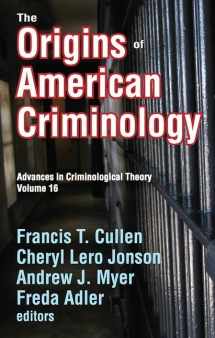
The Origins of American Criminology: Advances in Criminological Theory
Book details
Summary
Description
The Origins of American Criminology is an invaluable resource. Both separately and together, these essays capture the stories behind the invention of criminology’s major theoretical perspectives. They preserve information that otherwise would have been lost. There is urgency to embark on this reflective task given that the generation that defined the field for the past decades is heading into retirement. This fine volume insures that their life experiences will not be forgotten.
The volume shows criminology to be a human enterprise. Ideas are not driven primarily—and often not at all—by data. Theories are not invented solely as part of the scientific process; they are not inevitable. American criminology’s great theories most often precede the collection of data; they guide and produce empirical inquiry, not vice versa. Theoretical paradigms are shaped by a host of factors—scholars’ assumptions about the world drawn from their social constructs, disciplinary content and ideology, cognitive environments found in specific universities and the field’s scholarly networks, and, quirks in a person’s biography.
The volume demonstrates that humanity is what makes theory possible. Diverse experiences—when we were born, where we have lived, the unique trajectories of our personal life courses, the disciplines and academic places we have ended up—allow individual scholars to see the world differently.


We would LOVE it if you could help us and other readers by reviewing the book
Book review



